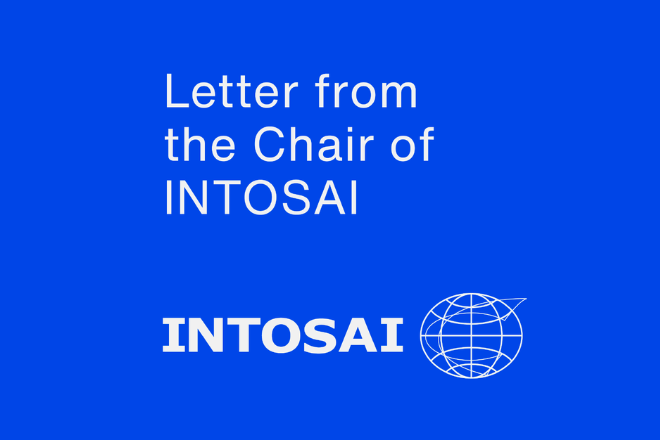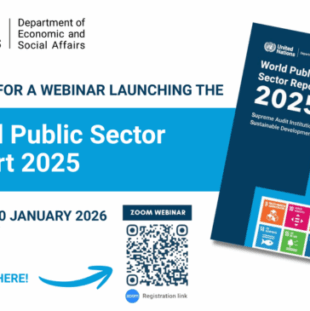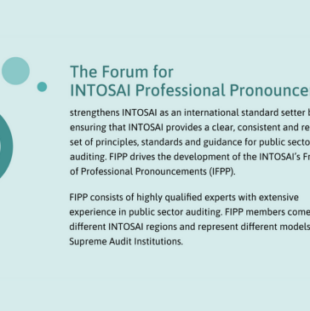Energy Transition in the Context of the Climate Crisis

The chair of the International Organization of Supreme Audit Institutions (INTOSAI), Minister Bruno Dantas, in his June 2024 open letter, writes about how energy is essential for economic growth and social development as it powers our homes, industries, and societies. At the core of the global agenda, it plays a vital role in addressing the pressing sustainable development challenges of our time.

The Paris Agreement, signed in 2015 during the 21st Conference of the Parties (COP21), emerged as a global strategy to counter the threat of climate change through sustainable development and poverty eradication efforts. One of the key commitments assumed in the agreement is to limit global temperature rise to 1.5°C above pre-industrial levels.
In line with this strategy, the United Nations (UN) 2030 Agenda, through its 17 Sustainable Development Goals (SDGs), establishes SDG 7 to ensure access to affordable, reliable, sustainable, and modern energy for all.
Data from the International Energy Agency (IEA)[1] indicates that the energy sector is responsible for over 75% of global greenhouse gas emissions. Moreover, the International Renewable Energy Agency (IRENA)[2] states that to limit global warming to 1.5°C, CO₂ emissions must be reduced and net-zero emissions in the energy sector achieved by 2050. This requires a significant increase in the share of renewable energy in the global energy mix, from 16% in 2020 to 77% in 2050, and an estimated total investment of USD 150 trillion, with an annual average of over USD 5 trillion, representing about four times the current level of investment.
However, the global landscape demonstrates clear disparities in the accessibility and affordability of clean energy. Renewable energy investment remains concentrated in a limited number of countries and focused on a narrow range of technologies, with 85% of global investment benefiting less than 50% of the world’s population.
COP28, held in Dubai in late 2023, presented the First Global Stocktake of the Paris Agreement, concluding that human activities, primarily through greenhouse gas emissions, have caused a global warming of approximately 1.1°C. These impacts are already being felt globally, disproportionately affecting those who have contributed least to these changes, with losses and damages expected to escalate with further warming. Additionally, adaptation responses are fragmented, incremental, and uneven across regions, with significant gaps that will continue to widen.
In light of the binding commitments made by nations, the alarming levels of energy sector emissions, and the rapidly intensifying impacts of climate change, the conference emphasized the pressing need for decisive action to maintain the goal of limiting global warming, which requires joint efforts to mitigate the crisis, transition to low-carbon economies, and strengthen resilience against climate crisis impacts.
Just and inclusive energy transitions are essential to reducing emissions, enhancing energy efficiency, and promoting equity. In the face of the urgent climate crisis and the imperative for both public and private investment, supreme audit institutions (SAIs) hold a crucial role in supporting equitable energy transitions. Through our efforts, we can contribute to strengthening institutional structures, promoting an environment that is favorable to investment and effective public policies, and ensuring transparency and accountability by evaluating the integrity, efficiency, and effectiveness of policies related to energy transitions. This includes strengthening regulatory institutions and practices, mitigating financial risks, and overseeing initiatives aimed at increasing investments in renewable energy, especially in developing countries and emerging economies.
Recent research conducted by the Working Group on Audit of Extractive Industries (WGEI) of the International Organization of Supreme Audit Institutions (INTOSAI), involving 25 countries, stressed the main challenges SAIs face in conducting audits on energy transition. The results indicated that SAIs acknowledge their role in this field, with several having already conducted audits on the theme in recent years. Brazil stands out as a good example, having performed a pilot audit and a coordinated audit in 2018 within the framework of the Public Works Audit Working Group of the Organization of Latin American and Caribbean Supreme Audit Institutions (GTOP/OLACEFS), with the participation of SAIs from Chile, Colombia, Costa Rica, Cuba, Ecuador, El Salvador, Guatemala, Honduras, Mexico, Paraguay, and Venezuela. The audit identified best practices and opportunities for improvement in renewable energy policies.
However, most supreme audit institutions recognize their technical ability’s limitations to tackle the challenges of energy transition due to a lack of qualified teams, limited data, and the absence of specific methodologies. Therefore, we must strengthen our technical expertise to effectively support our governments through insights and recommendations aligned with climate goals, thus promoting sustainable development and global cooperation.
Under the presidency of Brazil, the G20 has prioritized promoting sustainable development, addressing its economic, social, and environmental dimensions, including energy transitions. In this context, the SAI20, led by the TCU and open to all supreme audit institutions, has sought to advance this discussion and contribute to this global effort, bringing vital issues such as governance, regulation, transparency, and accountability to the table, to catalyze significant changes for a more sustainable future. In this joint effort, cooperation among SAIs is essential to affirm our commitment to encouraging and promoting more effective and responsible public policies, ensuring prosperity and well-being for all.
By working together, we can contribute to building a more robust and transparent governance environment, which is essential for addressing the urgent and complex challenges of our time.






